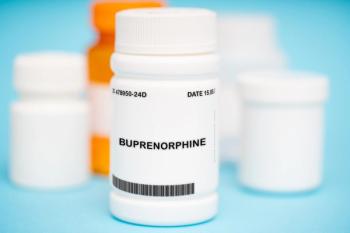
Rx drug abuse posing public health crisis--NIDA
Organized pharmacy unite with NIDA to mount campaign against drug abuse
GOVERNMENT and LAW
Rx drug abuse posing public health crisisNIDA
Community pharmacies are enlisting in a government-led campaign to stem the alarming rise in prescription drug abuse and misuse.
"The reports of increasing misuse of prescription drugs in some segments of the populationolder adults, adolescents, and womenare particularly worrisome because of their numbers and because those numbers appear to be increasing rapidly," said Alan I. Lesher, director of the National Institute on Drug Abuse (NIDA). "We have to try to fend off what could become another public health crisis in this country," he added at a news conference in Washington, D.C., last month.
The American Pharmaceutical Association, the National Association of Chain Drug Stores, and the National Community Pharmacists Association are joining the effort directed by NIDA, part of the National Institutes of Health. Also participating are the National Council on Patient Information & Education and the Pharmaceutical Research & Manufacturers of America, as well as AARP and the American Academy of Family Physicians.
An estimated four million Americans used Rxs for nonmedical purposes for the first time in 1999, the latest figure available, compared with fewer than 500,000 first-time misusers per year in the 1980s. Pain relievers are the Rxs most frequently misused (2.6 million users), followed by sedatives and tranquilizers (1.3 million users), and stimulants (0.9 million users). Opioid analgesics OxyContin (oxycodone HCl controlled-release, Purdue Pharma) and Vicodin (hydrocodone bitartrate and acetaminophen, Knoll) were featured in an April 9 Newsweek cover story on abuse of painkillers.
Some research suggests that more than 17% of adults over 60 may be affected by Rx abuse, NIDA said. In addition, new Rx abuse has dramatically increased among young people between 12-25 years old and is higher among women, in part because they are two to three times more likely to be diagnosed with depression and to be treated with psychotherapeutic drugs.
While the groups representing pharmacy pledged to support NIDA's initiative to raise public and professional awareness about those trends, APhA's new president noted the tension in a pharmacist's dual role as health-care practitioner and gatekeeper for potentially dangerous drugs.
"Determining legitimate medical purpose can be challenging," said Thomas E. Menighan, at the news conference. "Pharmacists cannot view every patient as a potential abuser without compromising responsibilities as a health-care practitioner." He added that R.Ph.s "struggle with the lack of a formal process for dealing with incidents of suspected or recognized abuse" and that creating such a process would be beneficial.
Calvin Anthony, NCPA's executive v.p., also noted that R.Ph.s have a "fine line to walk" in providing care and that abuse and misuse of medications is something "we confront every day." One of the most common problems, Anthony explained, is that patients don't understand some medications are intended for short-term use, and they wind up taking them long-term with serious consequences. "Education and awareness are key," he said.
To help in both of those areas, Edith Rosato, NACDS v.p. for pharmacy affairs, said the association will adapt NIDA material for its newsletter that goes to 96,000 chain R.Ph.s and link the NIDA Web site to its own. The association also plans to provide NIDA updates on how Rxs are being trafficked as street or designer drugs, and it is considering a continuing education unit on the subject. NCPA also will be providing NIDA material to members, especially members of its speakers bureau who regularly give talks on drug abuse.
Several participants stressed that there are many patients who continually need strong pain relievers and other potent medications, yet when used as prescribed, these drugs rarely lead to addiction and abuse. Indeed, the NIDA campaign comes at a time when more prescribers finally are becoming aware of the need to treat severe pain symptoms effectively and aggressively. Bert Spilker, PhRMA senior v.p. of scientific and regulatory affairs, stressed that need and said the pharmaceutical industry is working on new drugs "that are safe and effective and that are resistant to misuse and abuse."
Michael F. Conlan
Mike Conlan. Rx drug abuse posing public health crisis--NIDA.
Drug Topics
2001;9:58.
Newsletter
Pharmacy practice is always changing. Stay ahead of the curve with the Drug Topics newsletter and get the latest drug information, industry trends, and patient care tips.























